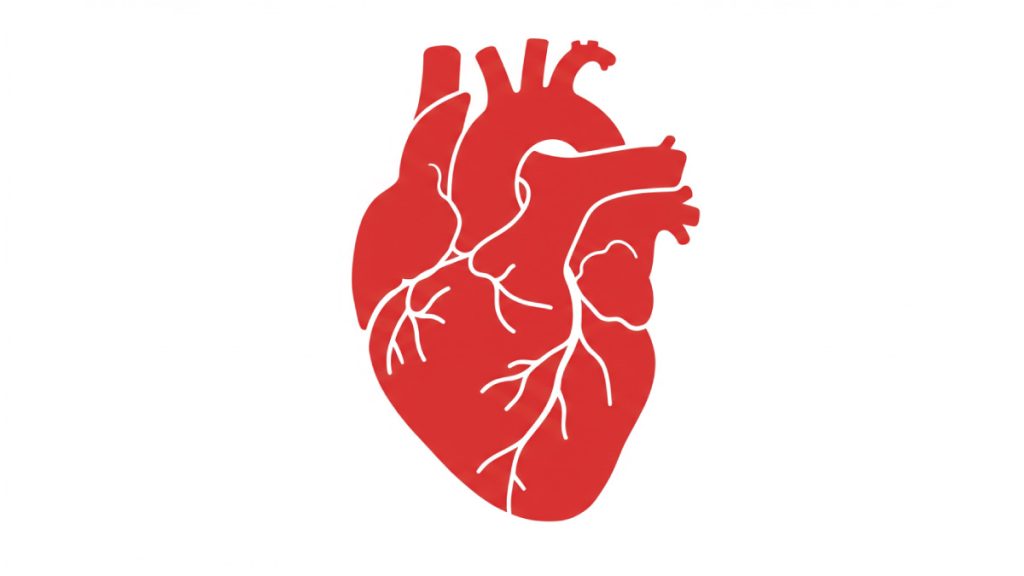NEWSLETTER: WORLD HEART DAY
DEFINITION OF THE HEART
The heart is a muscular organ that acts as the center of the circulatory system, pumping blood throughout the body to deliver oxygen and nutrients and remove waste products. It is also a metaphorical center for emotions, personality, and courage, as well as the central or innermost part of something.
HEART DISEASE
Coronary Artery Disease: A condition that causes plaque buildup in the heart arteries.
- Heart Failure: A condition where the heart can’t pump blood effectively.
- Arrhythmias: Irregular heart rhythms.
- Congenital Heart Disease: Birth defects affecting the heart.
- Pericardial Disease: Problems with the heart’s lining.
- Hypertension: High blood pressure.
Common Heart Diseases Symptoms:
Chest Pain or Discomfort
Uncomfortable pressure, squeezing, fullness, or pain in the center or left side of the chest that lasts more than a few minutes or comes and goes.
Pain or discomfort in other areas of the upper body, including the arms, shoulders, back, neck, or jaw.
Shortness of Breath
Feeling short of breath during normal activities or even at rest.
Waking up short of breath at night.
A new or worsening cough, sometimes with pink or bloody mucus, can signal fluid buildup in the lungs.
Other Symptoms
Fatigue: A persistent feeling of weakness or tiredness.
Dizziness and Fainting: Feeling lightheaded or experiencing a sudden, unexplained loss of consciousness.
Swelling: Fluid retention can cause swelling in the legs, ankles, or feet.
Palpitations: Feeling like your heart is beating too fast, too strongly, fluttering, or irregularly.
Nausea or Vomiting: Especially common in women, but can occur with heart events.
Skin Changes: Yellowish-orange, waxy growths on the skin can indicate unhealthy cholesterol levels.
RISK FACTOR OF HEART DISEASE
Unchangeable Risk Factors:
Age: Your risk of heart disease increases with age.
Genetics/Family History: A family history of heart disease, especially at a young age, increases your risk.
Race/Ethnicity: Certain racial and ethnic backgrounds may have a higher risk.
Modifiable Lifestyle Factors
Unhealthy Diet.
Lack of Physical Activity
Smoking/Tobacco Use
Excessive Alcohol Use
Unmanaged Stress
Poor Sleep
Medical Conditions
High Blood Pressure (Hypertension):
This condition damages blood vessels.
High Cholesterol:
High levels of this fatty substance can lead to narrowing and blockages in blood vessels.
Diabetes:
High blood sugar levels associated with diabetes can damage blood vessels, increasing the risk of narrowing.
Obesity:
Being overweight or obese increases the likelihood of developing high blood pressure, high cholesterol, and diabetes.
Kidney Disease:
Chronic kidney disease is linked to an increased risk of developing cardiovascular problems.
Atherosclerosis:
This involves a fatty buildup in the arteries, which narrows blood flow and is a risk factor.
.
TREATMENT AND PREVENTION OF HEART DISEASES
Treatment includes:
Lifestyle Changes
Diet: Focus on a heart-healthy diet, reducing saturated and trans fats, and eating more plant-based foods.
Exercise: Engage in regular, moderate-intensity aerobic activity, such as brisk walking, for about 30 minutes most days of the week.
Smoking Cessation: Stop smoking and using other tobacco products and vaping.
Weight Management: Maintain a healthy weight for your body.
Stress Reduction: Practice stress-reducing techniques like yoga or meditation.
Manage Other Conditions: Keep conditions like high blood pressure, high cholesterol, and diabetes under control.
Medications
Cholesterol-Lowering Drugs: Statins and other medications can lower LDL (bad) cholesterol levels.
Blood Pressure Medications: ACE inhibitors, ARBs, and other drugs help lower blood pressure and improve blood flow.
Anti-arrhythmic: Medications can be used to regulate abnormal heart rhythms.
Diuretics: Also known as “water pills,” these help the kidneys remove excess salt and water, easing the heart’s workload.
PREVENTION
Smoking is a major risk factor for heart disease, so quitting is crucial.
Eat a Heart-Healthy Diet:
Focus on fresh fruits, vegetables, and whole grains. Reduce your intake of salt, sugar, and unhealthy fats, especially saturated and trans fats.
Stay Physically Active:
Aim for at least 30 minutes of moderate-intensity exercise on most days of the week.
Maintain a Healthy Weight:
Being overweight increases your risk of heart disease, so work to reach and maintain a healthy weight.
Manage Stress:
Find healthy ways to reduce stress, such as exercise, meditation, or spending time with loved ones.
Get Enough Sleep:
Aim for 7 to 9 hours of quality sleep each night, as poor sleep can increase the risk of heart conditions.
MANAGEMENT
Medical Management are as follows:
Control Blood Pressure:
Have your blood pressure checked regularly and work with your doctor to keep it within a healthy range.
Monitor Cholesterol:
Get your cholesterol levels checked and manage them with diet, exercise, and, if necessary, medication.
Manage Diabetes:
If you have diabetes, closely controlling your blood sugar levels is vital for preventing heart disease.
Regular Checkups:
Schedule yearly checkups to monitor your risk factors and catch any potential issues early.
Other Tips
Limit Alcohol: Excessive alcohol consumption can negatively impact heart health.
Practice Good Hygiene: Regular handwashing, brushing, and flossing contribute to overall health, which supports heart health.

